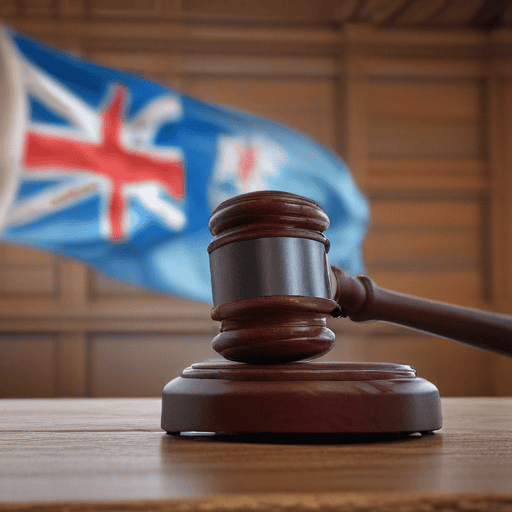The Judicial Services Commission (JSC) has announced that it will remain silent on the ongoing legal issues concerning the Fiji Independent Commission Against Corruption and the reinstated Director of Public Prosecutions (DPP), Christopher Pryde. JSC Chairperson and Chief Justice Salesi Temo emphasized that, while the matter is currently under review, the commission will not make any public statements related to the investigation.
In his statement, Justice Temo noted that the JSC has provided Pryde with details of the allegations against him, which were raised by Acting DPP Nancy Tikoisuva, and has requested a formal response within 14 days. In light of these developments, Pryde has been granted paid leave until his expected return to office on February 3.
Justice Temo reaffirmed the JSC’s commitment to upholding justice and ensuring the provision of quality services to the public by the Office of the DPP and the Judiciary. He further indicated that Pryde has communicated his need to address the allegations before resuming his duties.
This situation mirrors prior concerns regarding due process and accountability within Fiji’s judiciary. In the past, significant accusations have been made against Pryde, including allegations of financial misconduct, which he has vehemently denied, calling the claims defamatory. The context of these proceedings highlights the challenges faced by the Fiji legal system and underscores the need for transparency and fairness in such serious matters.
As the investigation develops, there is a hopeful outlook that the outcomes may lead to enhanced accountability within Fiji’s legal institutions, reinforcing public trust in the process. The commitment to justice from the JSC, alongside Pryde’s proactive approach in addressing these allegations, may foster a renewed focus on the integrity of Fiji’s judiciary.
In summary, while the current legal situation presents substantial obstacles, it also opens the door for necessary reform and re-examination of judicial practices in Fiji, potentially leading to a stronger, more transparent legal framework for the future.

Leave a comment